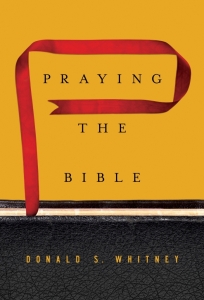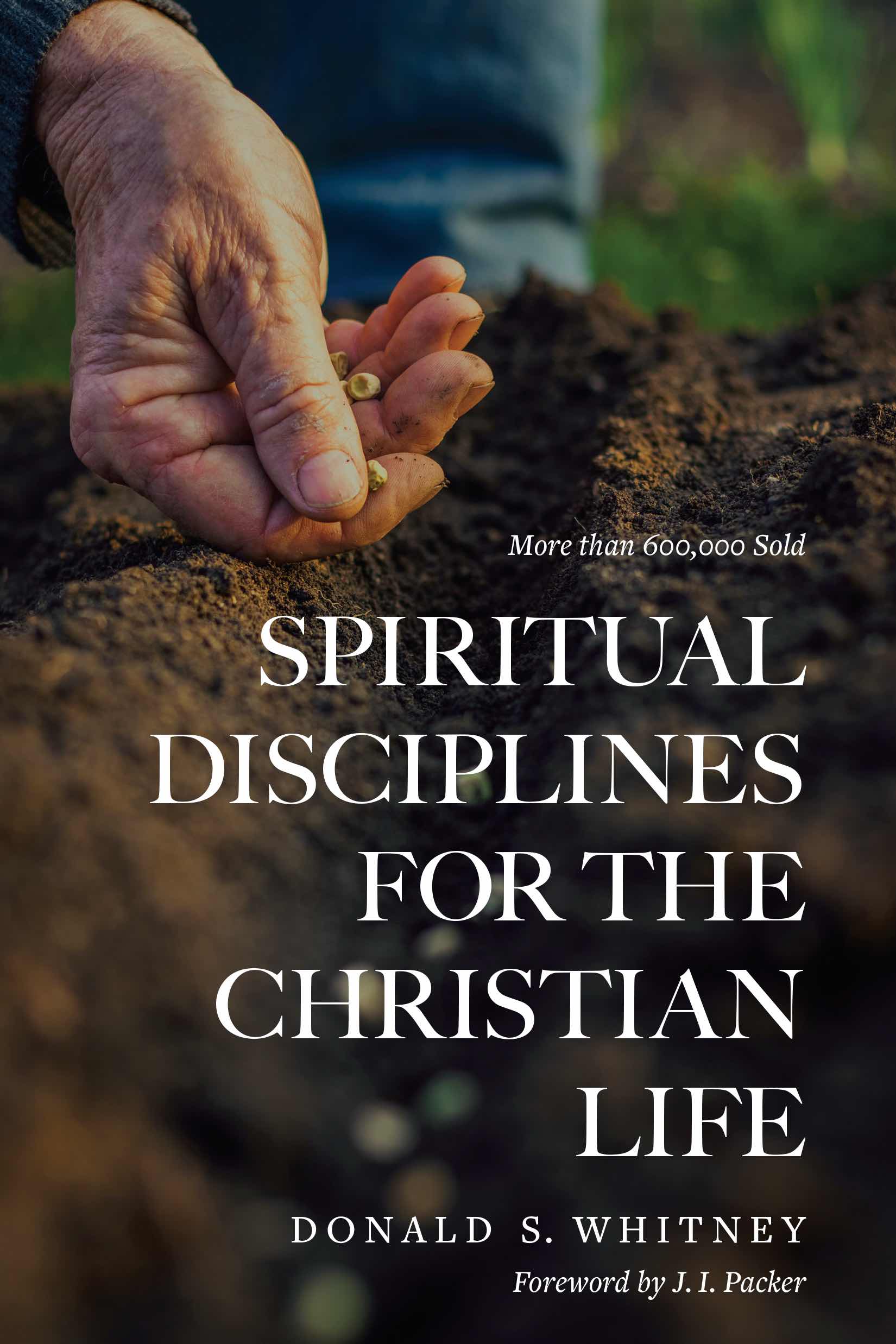A Brief, Biblical Response to the Stoicism of Tim Ferriss
Tim Ferriss seems like a very likable guy; the kind of guy who, if you met him and didn’t know he was famous, you’d still want to get to know. He is very personable in his podcasts. I enjoy listening to him.
Who Is Tim Ferriss?
I have profited from several things in Tim’s books, most notably his first book, The 4-Hour Workweek. This #1 New York Times bestseller catapulted Ferriss to fame in 2007. He followed this with three other books (each of which also became a #1 New York Times bestseller), including his most recent, Tools of Titans: the Tactics, Routines, and Habits of Billionaires, Icons, and World-Class Performers.
In addition to his writing and associated public speaking, Tim has enjoyed wide influence as an investor (especially to start-ups), an advisor to companies such as Facebook, Twitter, and Evernote, and as a philanthropist.
But Ferriss may be best known through his weekly podcast, The Tim Ferris Show. With more than 150 million downloads, the podcast was chosen as “iTunes Best of 2014,” and again in 2015 and 2016, as measured by “most downloaded.” The success of his books and podcast is truly remarkable.
I’ve listened to dozens of his podcast interviews, and have benefited from many of these conversations. Almost every guest proves to be fascinating, and in no small part to Tim’s excellent interviewing skills.
The Conversation I’d Love to Have with Tim
In fact, when hearing his podcasts, I have sometimes prayed that I would find myself seated on a plane next to Tim (after I received a complimentary first-class upgrade, of course). This is probably the only way I would ever be able to get to chat with him.
If I were privileged to have a conversation with Tim, there’s so much I’d like to ask him. Most importantly, I’d like to find out if he’s ever heard a clear presentation of the Gospel of Jesus Christ. My guess is, that like most Americans, he has not. Also like many Americans, Tim may believe he has heard the biblical Gospel. But my hunch is that, as I believe to be true even among a large percentage of American churchgoers, he would struggle to clearly articulate the essence of the Gospel. What a privilege it would be to share the good news of this message with Tim.
After all, I would think that even a person who is skeptical about the message of Christianity (as they currently understand it) but who loves to learn would be interested to know the essential message of the most famous person in the history of the world. (And by the way, it isn’t something like, “Live a good life and you’ll go to Heaven when you die.”) My experience is that even most who don’t consider themselves religious believe it benefits their understanding of the world to hear a concise presentation of the main message of the largest religion on the planet. Tim is a voracious learner, and I think he would willingly listen to a three-minute, conversational summary of the Gospel of Jesus Christ.
Tim and Stoicism
In the last few years, Tim has become a devotee of Stoicism. His April, 2017, TED talk on the subject garnered well over two million viewers in the first three months. By this, as well through his podcast and other means, Tim makes clear that he has found—as have a rapidly increasing number of others—a lot of intellectual satisfaction in Stoicism.
I really appreciate the fact that although Tim lives on the cutting edge of technology and culture, he seeks wisdom from old paths. In the long run, however, I believe Stoicism will greatly disappoint him. I’d love to tell Tim that there is another ancient path that welcomes those who, like Tim, search for truth. It’s footing is much more sure, and it leads to a destination infinitely more glorious than that of Stoicism.
After watching his TED talk, I’ve become concerned enough for Tim (and those he has influenced) to write a brief, biblical response to his Stoicism. Although I am an academic*, this isn’t an academic response. Rather this is more of a pastoral response**, which is what I think would best serve most readers of this blog.
What is Stoicism?
Stoic philosophy originated in Greece around 300 B.C. The name was taken from the Greek term for “painted porch” because the founder of Stoicism, Zeno of Citium, famously taught his wisdom from the painted porch of his home. Eventually the center of Stoic thought shifted from the Greeks to the Romans. From about the time of Christ onward, the most influential teachers of Stoicism were Roman thinkers, particularly Seneca (ca. 4 B.C. – A.D. 65), Epictetus (ca. 55 – 155), and the Roman emperor Marcus Aurelius (121 – 180), whose Meditations is surely the most famous book on Stoicism ever written.
Stoicism is built on a worldview that thinks of God not in reference to a personal being, but rather as of the totality of all things and often referred to as Nature. It is sometimes presented as monistic, meaning that “all is one,” and that the collective whole is a living, reasoning (despite not being a person), material, entity. At other times Stoicism is also considered pantheistic in the sense that the divinity attributed to the totality of all things is also present in every interconnected part of the whole.
Stoicism operates on the belief that everything is material, even thoughts and emotions, since they are produced by and have effects on the body and thus must be of the same substance. By extension, Stoics usually conclude that there can be no existence after the death of the body, thus they conclude there is no heaven or hell, only annhiliation. Seneca described the state after death as “non-existence.”
In view of these things, the Stoic maintains that the wisest course is not found in a wholesale abandonment to pleasure, to “eat, drink, and be merry, for tomorrow we die.” Rather the happiest (“eudaimonic”) life is found in a rigorous self-mastery that minimizes pain. A great deal of pain, sorrow, and misery are unavoidable, so on balance it is better to reduce the impact of uncontrollable events upon one’s emotions than to attempt to increase happiness by the pursuit of pleasure. As the Stoic uses logic and reason to strengthen virtue and minimize the vicissitudes of the emotions (especially destructive ones such as anger), he or she increasingly experiences a tranquility that softens the force of suffering.
It is impossible, of course, in the scope of this article to thoroughly present the philosophy of Stoicism. If you want to know more, a simple Google search for the term can take you to many sites, both academic and popular, devoted to that purpose. For book-length introductions to Stoicism see this academic volume or this one, or this more popular one. But in brief, Stoicism is a monistic/pantheistic philosophy designed to make one a better, more peaceful person and to improve one’s life in this world, but in this world only.
Biblical Christianity and Stoicism
The main differences between biblical Christianity and Stoicism can be summarized in the three most important events in the life of Jesus Christ, events reflected in the three best-known and most widely celebrated Christian holidays, namely Jesus’s incarnation, crucifixion, and resurrection.
1. The Incarnation of Jesus. Stoicism maintains that everything is a part of God. Christianity teaches that while God is present everywhere (that is, “omnipresent”), He is personal and distinct from His creation. A Stoic believes he or she is part of God; Christians believe that they are united with Christ by faith and that they are indwelled by the Spirit of God, but not that they are God or contribute a part of the totality that is God.
Stoics also believe that the tree in the yard is part of God. Christians believe that while God is present around and through the tree, He is separate from the tree and the tree is not part of God. As the apostle Paul said when speaking to Stoic philosophers, God, the Divine Being, “made the world and everything in it” (Acts 17:24), including the tree. At the very least this implies that God existed before and is not the same as the tree.
On that same occasion Paul declared of God, “In Him we live and move and have our being” (Acts 17:28), nevertheless we “should seek God” (verse 24). That’s because living in God’s omnipresence is not the same as being a part of God. So while we live as surrounded by the presence of God as much as a fish is surrounded by the ocean, we are not God any more than a fish is the ocean.
Further, Christianity teaches that God is Spirit (John 4:24), but also that He added humanity to His divinity. The second Person of the Trinity (that is, one God in three Persons: Father, Son, and Holy Spirit), enfleshed Himself and, while remaining fully God, became fully man. As God, He entered the world supernaturally through a virgin birth by a human woman. His name was Jesus. He was tempted in all ways as we are, and endured great suffering, but never sinned in word, deed, thought, or motive.
The incarnation means that God didn’t simply send a message to help us cope with life, He became one of us. He didn’t merely inspire wise men with a philosophy to help us, He took on flesh to rescue us. God didn’t just send principles of wisdom, he sent “Christ Jesus, who became to us wisdom from God, righteousness and sanctification and redemption” (1 Corinthians 1:30). And Jesus Himself did not point the way to God, rather He declared, “I am the way, and the truth, and the life. No one comes to the Father except through me” (John 14:6).
In short, Stoicism is a philosophy, a way of wisdom. Christianity is about a person, Jesus Christ. Yes, He was an example and a teacher of wisdom, but much more than that He is God Himself in a body; the personification of wisdom, doing for us what we could never do for ourselves. He lived the only life ever that earned the approval of God the Father; a perfect, sinless life that deserved acceptance into Heaven.
2. The Crucifixion of Jesus. Christianity declares that our greatest need is not merely principles of wisdom to cope with life, but the forgiveness of our sins against God. Regardless of how earthly wise we may be or how good a person we become (through Stoicism or anything else), the problem is that “all have sinned and fall short of the glory of God” (Romans 3:23). The Bible says that each of us “will give account to him who is ready to judge the living and the dead” (1 Peter 4:5). After the final judgment, many will “go away into eternal punishment, but the righteous into eternal life” (Matthew 25:46). What does it matter if we cope with life but stand condemned by God at the end?
What’s the solution? It isn’t found in ourselves. No matter how wise or good we become, no amount of wisdom or goodness can offset our sins. The solution is found in what God has done for us in Jesus. Jesus didn’t come to be merely an example or a great teacher, rather He came to offer His sinless life to God as a substitute for the lives of sinners. That substitution culminated in His taking the place of sinners on a Roman cross. There He received the wrath of God that we deserved so that we might receive the eternal life with God that Jesus deserved.
There’s no greater coping mechanism for this life than the inner peace and freedom that comes from knowing that, “There is therefore now no condemnation for those who are in Christ Jesus” (Romans 8:1), and that eternal life and joy with God await after death. What a difference between the porch and the cross!
In a nutshell, Stoics believe that our greatest problem is outside of us (the world) and that the solution lies within us (logic and reason). Christianity maintains that our greatest problem is within us (our sin) and that the solution lies outside of us—in the life and death of Jesus Christ. As the apostle Paul summarized the contrast, “Greeks seek wisdom, but we preach Christ crucified” (1 Corinthians 1:22-23).
3. The Resurrection of Jesus. The declaration of the bodily resurrection of Jesus was the biggest stumbling block to the Stoics addressed by the apostle Paul in Athens (Acts 17:32). They recognized that the resurrection changes everything.
The literal, physical resurrection of Jesus after three days in a tomb moves the entire issue from a discussion of which philosophy is superior to a matter of proof. The resurrection of Jesus is the ultimate proof substantiating all His claims. The various miracles of Jesus demonstrated His claim to be God, for He did what only God could do. He dispelled storms with a word (Mark 4:35-41)***, banished evil spirits (Luke 4:31-37 and here), restored limbs (Matthew 12:9-14), healed every disease (Matthew 8:16, 12:15; Luke 6:19), and raised the dead (Mark 5:21-43; Luke 7:11-17; and especially John 11:1-44). These were designed to display His divinity and validate His teaching.
But the ultimate confirmation of all that Jesus said and did was to rise from the dead. What greater proof of any claim could anyone offer than this? And although some have tried to refute it, returning to life after three days of complete death is the supreme testimony of Jesus’ authority.
Christianity stands or falls on the reality of the resurrection of Jesus. If it’s true, then it is the most important event in history. Zeno, Seneca, Epictetus, and Marcus Aurelius are dead. But Jesus is alive. And He promises to return (Matthew 24:44; Acts 1:11; Revelation 1:7), after which all will stand before Him at the Last Judgment (Revelation 20:11-15).
In closing . . .
If a person rejects the love of God offered through Christ, then Stoicism may be his or her best option. For my part, I’d rather have a neighbor who seriously pursued Stoicism than one who wasn’t as intent on becoming a better person. And doubtless the principles of Stoicism can produce a measure of equanimity and wholeness that many a sincere practitioner did not experience before. But even if evaluated from a this-world-only perspective, the supernatural joy and peace and forgiveness produced by the Holy Spirit in this life for those who know God through Christ surpasses anything generated by a mere philosophy, no matter how profound.
Much more importantly though, Stoicism does nothing for a person in the next life. Indeed, Stoicism denies the existence of a life beyond this world. But God has put eternity in our hearts (Ecclesiastes 3:11). We don’t want this life to be all there is, and intuitively we sense that we were meant for something more than eventual meaninglessness and imminent annihilation.
The Bible teaches that once created, every person will live forever, either in Heaven with God or in Hell without Him. Some will know immeasurable joy, unbounded love, inextinguishable peace, and blessings beyond number and description in the experience of God Himself; but some will suffer in darkness and unending misery.
How good of God who, without obligation to do so, warns us of the danger ahead before its too late, and opens His arms to welcome all who will come to Him through Jesus. Why embrace what can never fully satisfy and will only fail you in the end?
God made your heart, and your heart will be restless until you find the only thing that can satisfy your heart—God Himself. He is findable. He is knowable. The way is through Jesus. He is worthy of all your trust. Even now.
This invitation from Jesus is for all who read these words: “Come to me, all who labor and are heavy laden, and I will give you rest. Take my yoke upon you, and learn from me, for I am gentle and lowly in heart, and you will find rest for your souls. For my yoke is easy, and my burden is light” (Matthew 11:29-30).
*I have a Ph.D. in theology and teach in a theological seminary.
**I have also pastored for more than two decades (mostly before my academic career), including fifteen years at one church.
***To read any of these biblical references online, go to www.esv.org and type the reference (such as “Mark 4:35-41”) into the search box in the upper right corner. This is the website for the English Standard Version of the Bible, a translation I highly recommend for both readability and accuracy to the original Hebrew and Greek of the Bible.
Photo credit: guides.co





I thoroughly enjoyed this. I would also love to see a post on another guru of sorts. Gary V.
Thank you, Earl, for reading and replying.
Well, I have been educated tonight about stoicism. Thank you Don for taking the time to explain so much as to the difference between stoicism and Christianity. In the end of life stoicism falls way short. Because without Christ the result is tragic. Eternal separation from our creator, Savior, and friend. I hope many will read this. I know some people who believe as a stoic. How sad.
Peggy! So good to hear from you! Yes, Stoicism is making a big comeback. According to Ferriss, it’s growing rapidly in places like the NFL, the military, and business leadership. I’m hopeful this post will help people evaluate it in light of Scripture. Say hi to Jim!
Well written,I’ve also had the same thoughts. I enjoy his podcast and have really benefited from them but have had a deep concern for him spiritually. He’s a very good interviewer, thank you for the article.
Thank you, Tony! I appreciate your reading this long post and taking the time to reply. Blessings!
I agree with your theology and greatly appreciate your honest and kind engagement with other thoughts.
I’m grateful for your reply, Roger. I did try to be fair to Stoicism and to Tim.
Thank you for this. I was going they some notes I made in Epicureanism and hedonism and had a note…what is stoicism.
As I read the Stoic daily I was shocked to see how this permeates the world view of many thought leaders. I’m an entrepreneur and read and follow many Christians who, I now realize, teach many of the stoic philosophies.
At first I wondered if this was Jesus teachings…without Jesus. I believe I understand stoicism appeared before Jesus. So as you so aptly put it, the enemy of our soul knew Gods character and requirements and so inspired a godly life without a God.
I thought the universalism taught by ophrah was a combo of Hindu and bhuddhist but it is actually 100% stoicism.
Your article was a great help. I’m not going to spend any more time studying this but will be careful to have my words always point people to Jesus Christ as the final answer.
Thanks, Celeste, for taking the time to read the post, and especially for the encouraging reply. I am glad it was helpful.
I appreciate your concern for a brother that relies solely on a philosophy in the place of religion, in our case the saving grace of Jesus Christ. Yet, I think it is quite easy to be a Christian Stoic, as many Christians have been throughout history. So much so that the early Church Fathers claimed the Stoic Seneca as “our Seneca.” I just think the “either/or” argument is simply building a straw man argument to knock down as it relates to those of us like myself, who are Christians and can see the value of the Stoic ethic. Cheers!